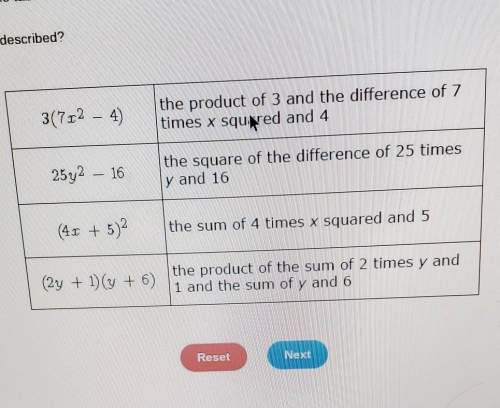
Mathematics, 26.06.2020 23:01 cesarcastellan9
If there is no seasonal effect on human births, we would expect equal numbers of children to be born in each season (winter, spring, summer, and fall). A student takes a census of her statistics class and finds that of the 120 students in the class, 26 were born in winter, 34 in spring, 32 in summer, and 28 in fall. She wonders if the excess in the spring is an indication that births are not uniform throughout the year.
a) What is the expected number of births in each season if there is no "seasonal effect" on births?
b) Compute the χ2 statistic.
c) How many degrees of freedom does the χ2 statistic have?

Answers: 2
Another question on Mathematics

Mathematics, 20.06.2019 18:04
Hiroki wrote a number that is the opposite of -3. what number did hiroki write? a. ⅓ b. 3 c. 0 d. -3
Answers: 2

Mathematics, 21.06.2019 18:00
Arecipe calls for 32 fluid ounces of heavy cream.how many 1 pint containers of heavy cream are needed to make the recipe?
Answers: 2

Mathematics, 21.06.2019 18:00
Based on the graph, what is the initial value of the linear relationship? a coordinate plane is shown. a line passes through the y-axis at -2 and the x-axis at 3.
Answers: 3

Mathematics, 21.06.2019 18:30
You love to play soccer! you make a shot at the net 8 times during a game! of those 8 attempts, you score twice. what percent of the time did you score?
Answers: 2
You know the right answer?
If there is no seasonal effect on human births, we would expect equal numbers of children to be born...
Questions










History, 16.10.2019 00:40





Social Studies, 16.10.2019 00:40

History, 16.10.2019 00:40


History, 16.10.2019 00:40


Social Studies, 16.10.2019 00:40




